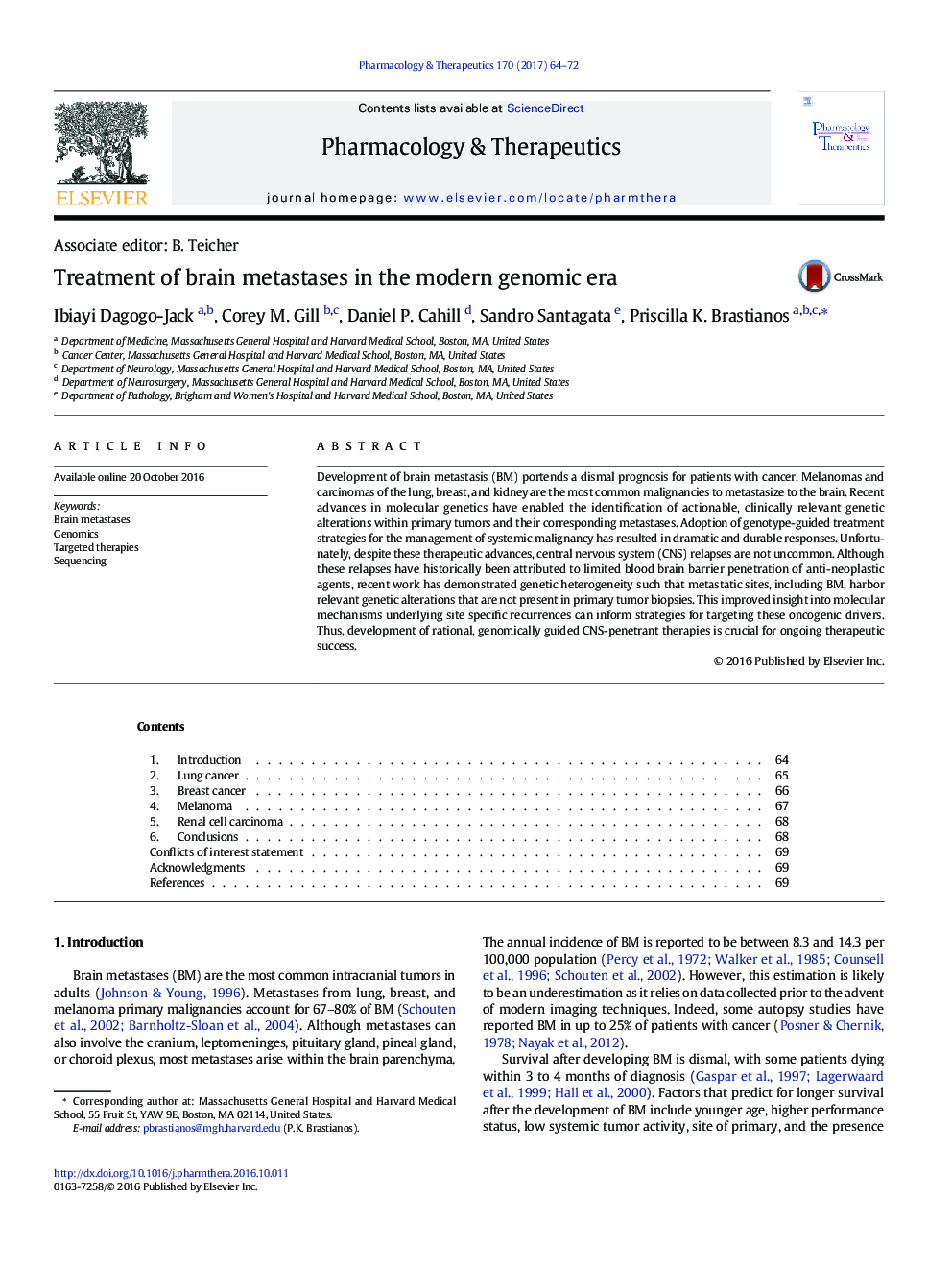| Article ID | Journal | Published Year | Pages | File Type |
|---|---|---|---|---|
| 5557710 | Pharmacology & Therapeutics | 2017 | 9 Pages |
Development of brain metastasis (BM) portends a dismal prognosis for patients with cancer. Melanomas and carcinomas of the lung, breast, and kidney are the most common malignancies to metastasize to the brain. Recent advances in molecular genetics have enabled the identification of actionable, clinically relevant genetic alterations within primary tumors and their corresponding metastases. Adoption of genotype-guided treatment strategies for the management of systemic malignancy has resulted in dramatic and durable responses. Unfortunately, despite these therapeutic advances, central nervous system (CNS) relapses are not uncommon. Although these relapses have historically been attributed to limited blood brain barrier penetration of anti-neoplastic agents, recent work has demonstrated genetic heterogeneity such that metastatic sites, including BM, harbor relevant genetic alterations that are not present in primary tumor biopsies. This improved insight into molecular mechanisms underlying site specific recurrences can inform strategies for targeting these oncogenic drivers. Thus, development of rational, genomically guided CNS-penetrant therapies is crucial for ongoing therapeutic success.
